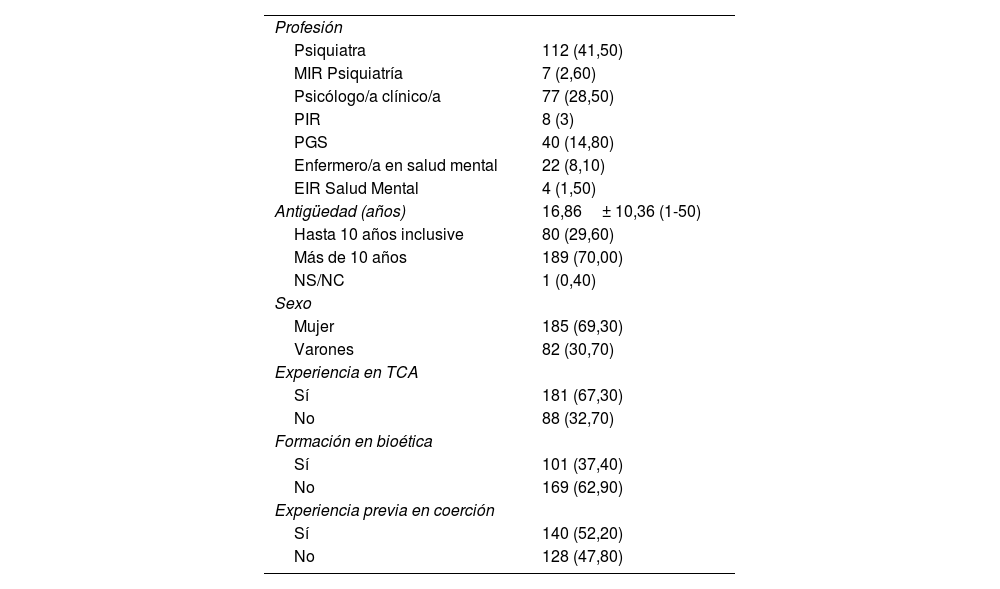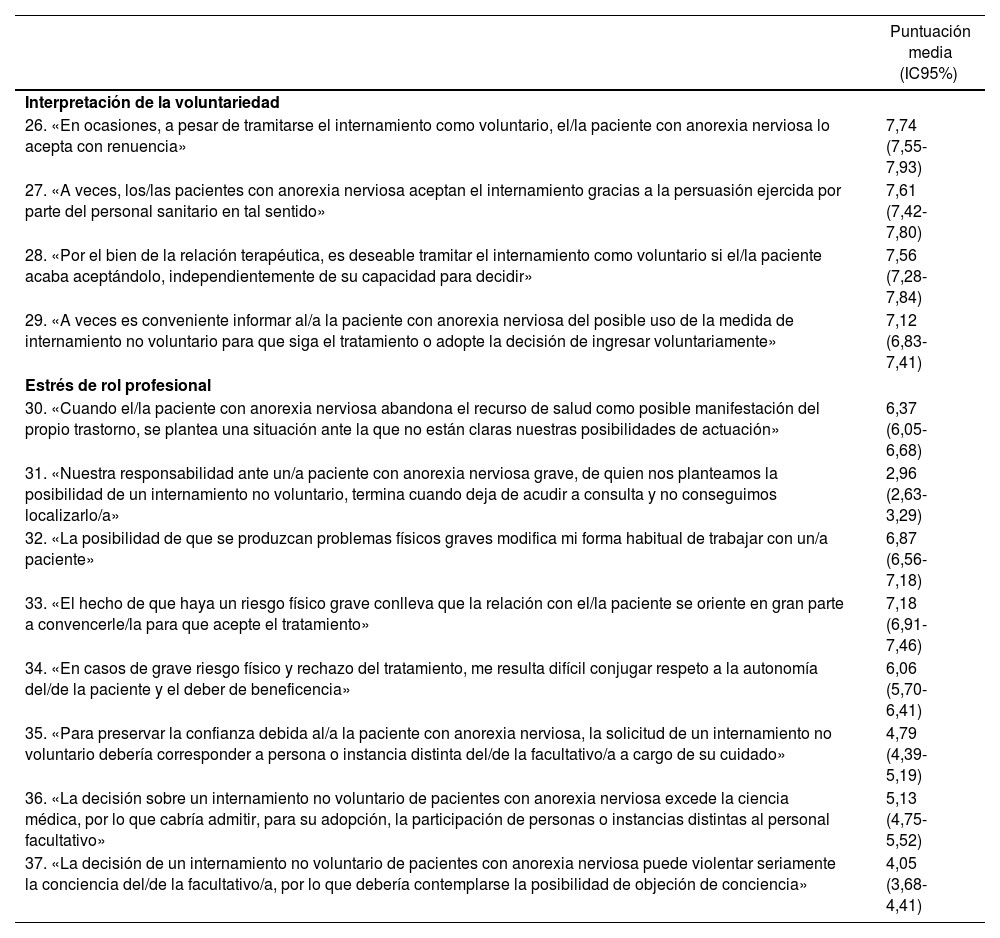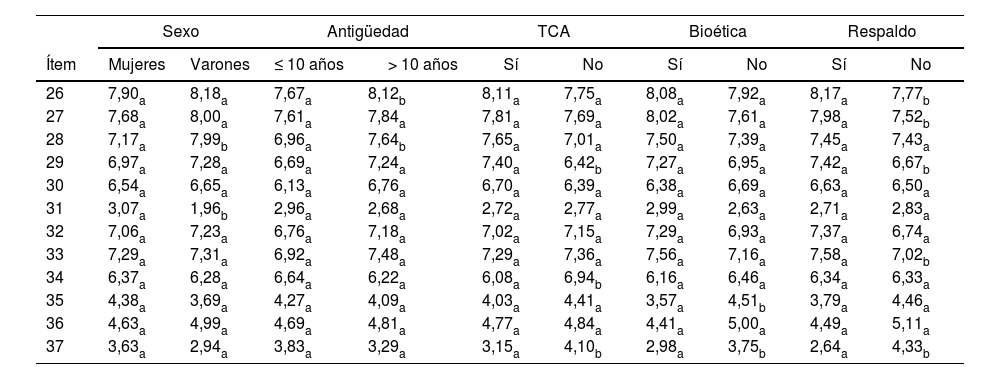
Número especial: Avances y retos en la psiquiatría regional en Latinoamérica
More infoEl internamiento de pacientes con anorexia nerviosa plantea un importante problema bioético y puede generar estrés en el profesional sanitario. El objetivo es conocer y analizar la opinión de los profesionales de salud mental sobre algunas condiciones de aplicación del internamiento no voluntario a pacientes con anorexia nerviosa.
MétodosEstudio observacional descriptivo transversal sobre una muestra de 270 profesionales de la salud mental mediante un cuestionario de 0 a 10 puntos elaborado ad-hoc.
ResultadosLos profesionales manifiestan que, en ocasiones, el paciente acepta el internamiento con renuencia: 7,74 (IC95%, 7,55-7,93). En caso de riesgo físico, les resulta difícil conjugar el respeto a la autonomía del paciente y el deber de beneficencia: 6,06 (IC95%, 5,70-6,41), y la relación con el paciente se orienta en gran parte a convencerle: 7,18 (IC95%, 6,91-7,46). No se decantan sobre la idoneidad de la participación de personal no facultativo en la decisión: 5,13 (IC95%, 4,75-5,52), ni si la solicitud debería corresponder a persona o instancia distinta del facultativo a cargo de su cuidado: 4,79 (IC95%, 4,39-5,19). Rechazan la posibilidad de objeción de conciencia: 4,05 (IC95%, 3,68-4,41).
ConclusionesLos profesionales de la salud mental se encuentran sometidos a unas exigencias laborales ambiguas, lo que repercute en su dinámica asistencial.
The hospitalisation of patients with anorexia nervosa poses an important bioethical quandary and can generate stress for the healthcare professionals. Our goal was to know and analyse the opinion of mental health professionals on some conditions for applying the involuntary hospitalisation of patients with anorexia nervosa.
MethodsCross-sectional descriptive observational study on a sample of 270 mental health professionals, using an ad hoc questionnaire with scores ranging from 0 to 10.
ResultsThe professionals state that, in some cases, the patient accepts admission reluctantly: 7.74 (95% CI, 7.55-7.93). In the event of physical risk, it is difficult for them to combine respect for the patient's autonomy and the duty of care: 6.06 (95% CI, 5.70-6.41) and the relationship with the patient is largely oriented to convince them: 7.18 (95% CI, 6.91-7.46). They do not decide on the suitability of the participation of non-medical staff in the decision: 5.13 (95% CI, 4.75-5.52), or if the indication should correspond to someone other than the doctor in charge of their care: 4.79 (95% CI, 4.39-5.19). They reject the possibility of conscientious objection: 4.05 (95% CI, 3.68-4.41).
ConclusionsMental health professionals are subject to ambiguous work demands, which affects their care dynamics.









